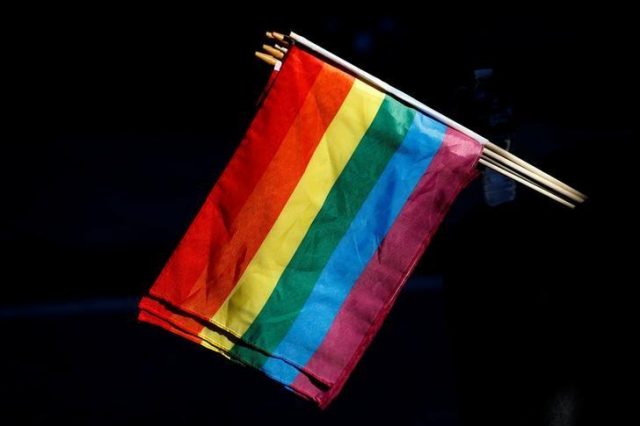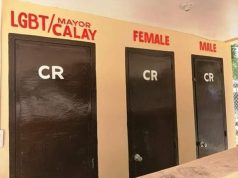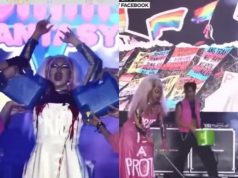
Popular drama anthology show “Maalaala Mo Kaya” announced that it will be airing an episode this June on someone who once was part of the Lesbian, Gay, Bisexual, Transexual, and Queer + community and later converted to heterosexuality, around the same time the community is set to celebrate “Pride Month” in the country.
Some members of the community have voiced their disapproval on the online sphere.
Their case against ‘Titibo-tibo’
The episode set to air on June 16 details the story behind the popular 2017 hit song “Titibo-tibo,” which is about a woman who grew up a lesbian but was converted to heterosexuality after she became interested in a heterosexual male she befriended.
The song, originally composed by Libertine Amistoso, won the songwriting competition Himig Handog in 2017 and was popularized by singer Moira de la Torre.
For those criticizing the episode, airing the episode is both harm and insult to Pride Month, which is celebrated by the LGBTQ+ community this June.
Vince Liban, Punong Babaylan or head of University of the Philippines gender equality organization Babaylan, outlined what he believed was harmful about the episode.
hi sweetie, if u havent read the memo yet, #MMKTitiboTibo is problematic bcoz it:
✖️ perpetuates heteronormativity
✖️ harms homo- & bisexualityyes, her story’s a valid one (theoretically sexuality is fluid) but there are way better stories that DOESNT harm other identities. https://t.co/MlkWnta8Ww
— Vince Liban; ?️? (@vinceliban) June 13, 2018
Some critics have also argued that the song and the episode inspired by it enforce the narrative that sexual orientation can be “corrected,” as they both appear to depict homosexuality as something temporary.
Kaya tinatanong pa rin ako kung magkakagusto pa rin ako sa babae kasi the mainstream representation is that being LGBT+ is an erroneous phase that is temporary and can be “corrected” and that going “back to being straight” should be celebrated. Umay na ako sa ganitong narrative. https://t.co/dRFcn4xDl7
— Kenneth Manuel (@theklmanuel) June 13, 2018
For some, the episode robs the community of proper media representation.
minsan na nga lang tayo magkaroon ng representation sa mainstream media,,,,, ganito pa,,,,,, https://t.co/sAFYLmCohi
— ?20gayteen? (@MillennialOfMNL) June 13, 2018
The hit song by De la Torre had previously been criticized by members of the LGBTQ+ community. In January 2018, GMA Network producer John Mychal Feraren, in an article on ClaireDelfin.com argued that the problem was rooted in the systemic oppression of women who identified as lesbian faced.
He said the song depicted lesbianism as something that can be easily altered when what is perceived to be ‘true love’ comes along, when such was rarely the case.
Filmmaker Samantha Lee in an article on CNN Philippines wrote that the song promoted the idea that women should abandon their sense of selves to subscribe to a misogynistic society’s prescribed gender norms while commodifying the abuse and discrimination suffered by the LGBTQ+ community.
Both De la Torre and Amistoso have defended the song by claiming that it was not a narrative on the experience of lesbians, but merely that of a “boyish girl” who grew up inclined toward stereotypical male behavior.
The tradition of celebrating pride month in June originated trace their roots to a series of riots that took place in 1969, when patrons of gay clubs fought back against police that raided their nook. Various LGBTQ+ groups are expected to come together for this year’s Pride March on June 30. The Stonewall Inn which was the site of the protests is considered an important location of gender equality activists.









